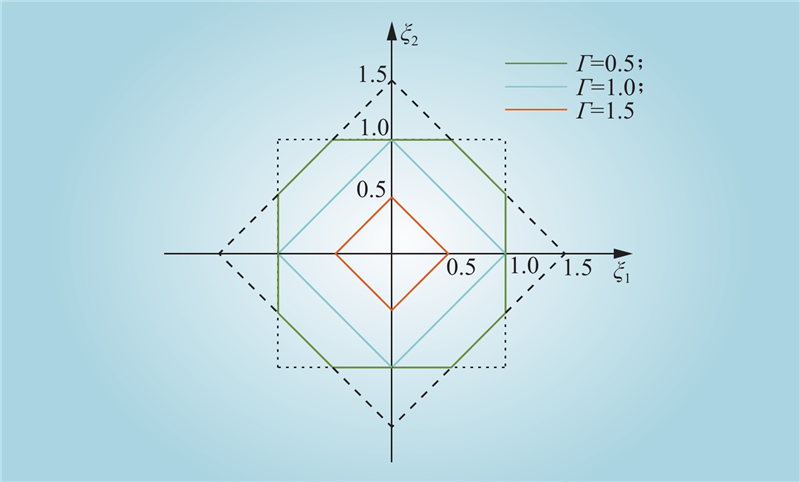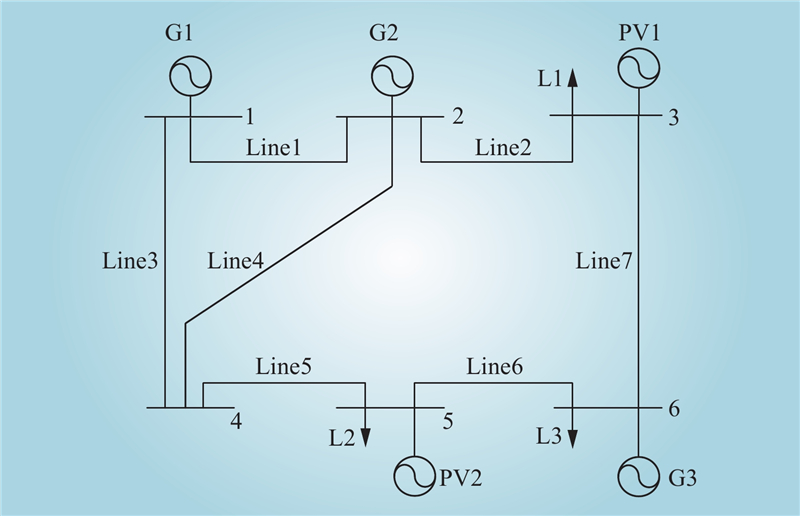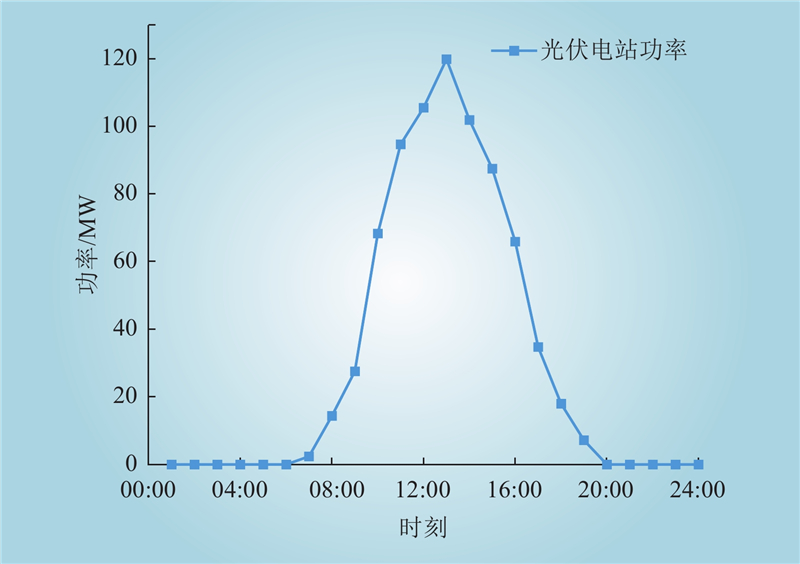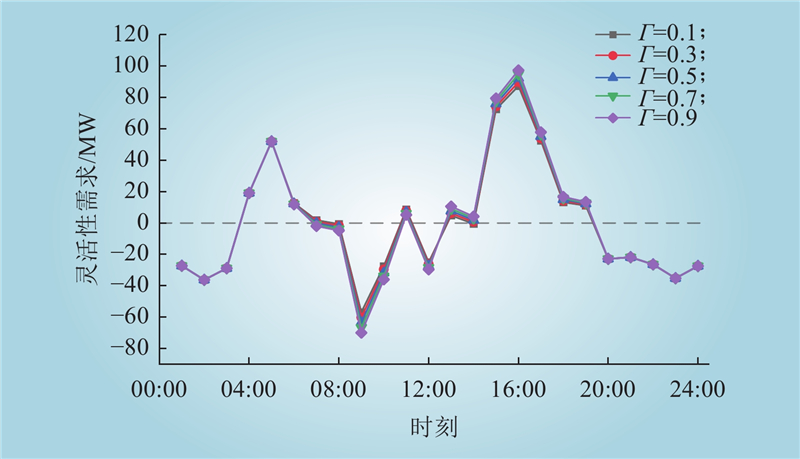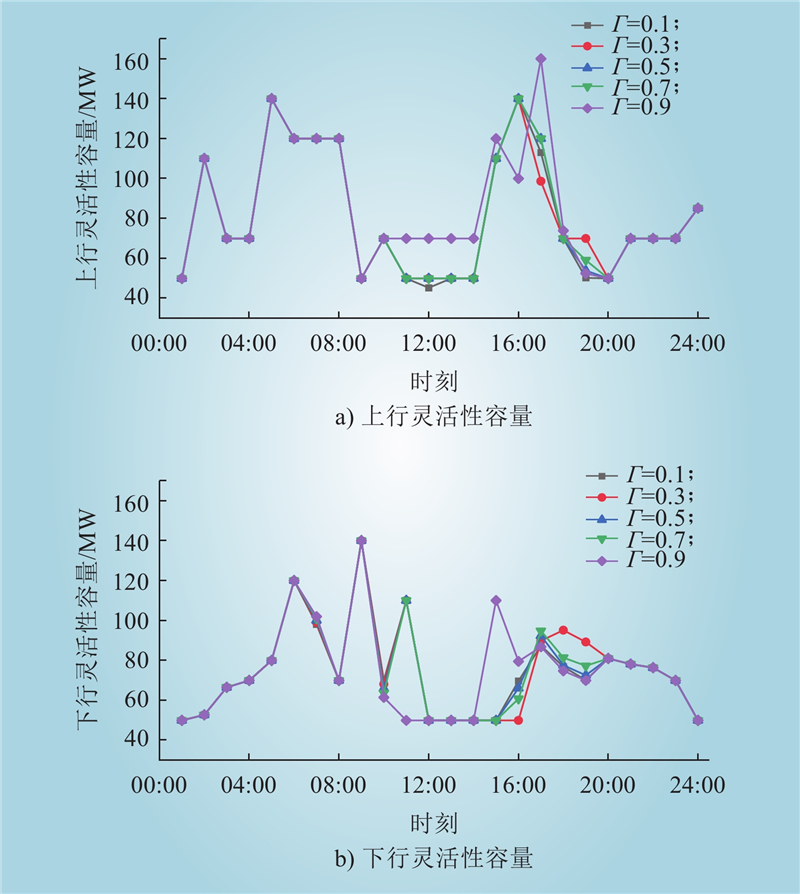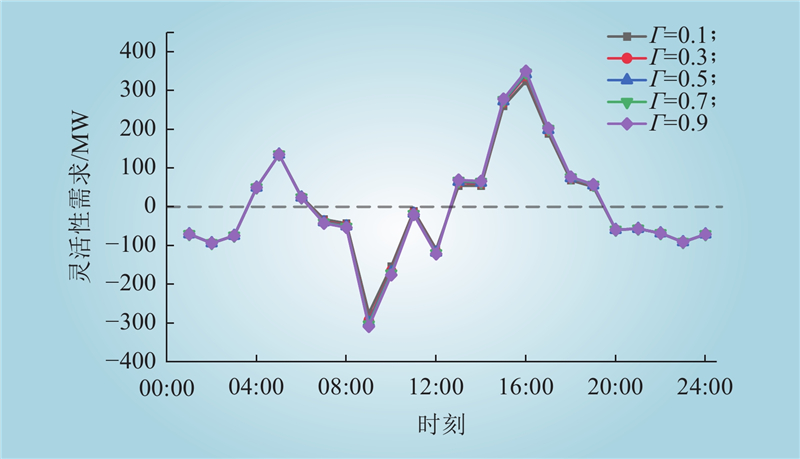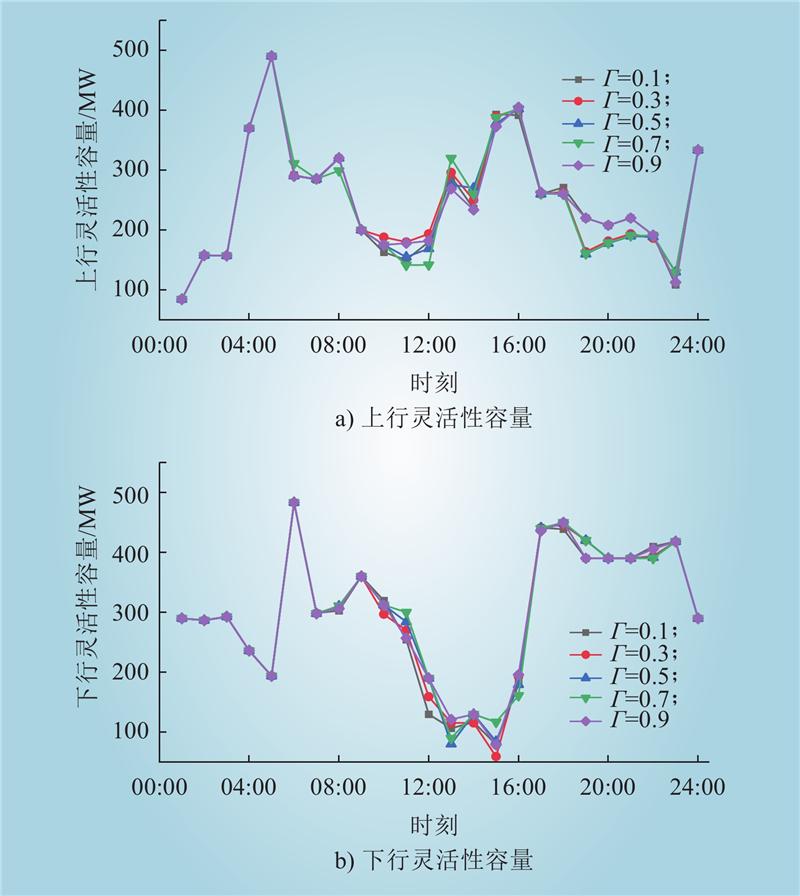| 1 |
张玉敏, 孙鹏凯, 孟祥剑, 等. 基于碳势-能源价格双响应的综合能源系统低碳经济调度[J]. 电力系统自动化, 2024, 48 (9): 21- 33.
|
|
ZHANG Yumin, SUN Pengkai, MENG Xiangjian, et al. Low-carbon economic dispatching of integrated energy system based on dual response of carbon intensity and energy price[J]. Automation of Electric Power Systems, 2024, 48 (9): 21- 33.
|
| 2 |
WANG K, WANG C F, YAO W L, et al. Embedding P2P transaction into demand response exchange: a cooperative demand response management framework for IES[J]. Applied Energy, 2024, 367, 123319.
|
| 3 |
舒印彪, 张智刚, 郭剑波, 等. 新能源消纳关键因素分析及解决措施研究[J]. 中国电机工程学报, 2017, 37 (1): 1- 9.
|
|
SHU Yinbiao, ZHANG Zhigang, GUO Jianbo, et al. Study on key factors and solution of renewable energy accommodation[J]. Proceedings of the CSEE, 2017, 37 (1): 1- 9.
|
| 4 |
李娟, 王玲, 孙康杰, 等. 考虑风电不确定性和有功无功联合调整的两阶段优化调度[J]. 东北电力大学学报, 2023, 43 (3): 72- 81.
|
|
LI Juan, WANG Ling, SUN Kangjie, et al. Two-stage optimal dispatch considering uncertainty of wind power and joint regulation of active and reactive power[J]. Journal of Northeast Electric Power University, 2023, 43 (3): 72- 81.
|
| 5 |
任景, 高敏, 程松, 等. 面向新能源不确定性的西北电力电量平衡机制[J]. 中国电力, 2023, 56 (9): 66- 78.
|
|
REN Jing, GAO Min, CHENG Song, et al. A balance method for power supply-demand adapting to high uncertainties of renewable energy in northwest power grid[J]. Electric Power, 2023, 56 (9): 66- 78.
|
| 6 |
AGENCY I E. Empowering variable renewables – options for flexible electricity systems[M]. Paris: OECD/IEA, 2009.
|
| 7 |
张新民, 郭铭海, 林亚培, 等. 考虑灵活性的含分布式光伏配电网双层优化调度方法[J]. 电力科学与技术学报, 2021, 36 (3): 56- 66.
|
|
ZHANG Xinmin, GUO Minghai, LIN Yapei, et al. A bi-layer optimal dispatch approach for distribution networks with distributed photovoltaic considering the flexibility[J]. Journal of Electric Power Science and Technology, 2021, 36 (3): 56- 66.
|
| 8 |
白帆, 陈红坤, 陈磊, 等. 基于确定型评价指标的电力系统调度灵活性研究[J]. 电力系统保护与控制, 2020, 48 (10): 52- 60.
|
|
BAI Fan, CHEN Hongkun, CHEN Lei, et al. Research on dispatching flexibility of power system based on deterministic evaluation index[J]. Power System Protection and Control, 2020, 48 (10): 52- 60.
|
| 9 |
鲁宗相, 李海波, 乔颖. 高比例可再生能源并网的电力系统灵活性评价与平衡机理[J]. 中国电机工程学报, 2017, 37 (1): 9- 20.
|
|
LU Zongxiang, LI Haibo, QIAO Ying. Flexibility evaluation and supply/demand balance principle of power system with high-penetration renewable electricity[J]. Proceedings of the CSEE, 2017, 37 (1): 9- 20.
|
| 10 |
高瑞阳, 王新宝, 高娴, 等. 考虑灵活性资源和多能共享的低碳区域综合能源系统联盟-配电网博弈优化调度[J]. 南方电网技术, 2024, 18 (2): 77- 88.
|
|
GAO Ruiyang, WANG Xinbao, GAO Xian, et al. Optimal dispatching of low-carbon regional integrated energy system alliance and distribution network game considering flexible resources and multi energy sharing[J]. Southern Power System Technology, 2024, 18 (2): 77- 88.
|
| 11 |
李静轩, 周明, 朱凌志, 等. 可再生能源电力系统运行灵活性需求量化及优化调度方法[J]. 电网技术, 2021, 45 (7): 2647- 2656.
|
|
LI Jingxuan, ZHOU Ming, ZHU Lingzhi, et al. Flexibility requirement quantifying and optimal dispatching for renewable integrated power systems[J]. Power System Technology, 2021, 45 (7): 2647- 2656.
|
| 12 |
程杉, 傅桐, 李沣洋, 等. 含高渗透可再生能源的配电网灵活性供需协同规划[J]. 电力系统保护与控制, 2023, 51 (22): 1- 12.
|
|
CHENG Shan, FU Tong, LI Fengyang, et al. Flexible supply demand collaborative planning for distribution networks with high penetration of renewable energy[J]. Power System Protection and Control, 2023, 51 (22): 1- 12.
|
| 13 |
吉兴全, 刘健, 叶平峰, 等. 计及灵活性与可靠性的综合能源系统优化调度[J]. 电力系统自动化, 2023, 47 (8): 132- 144.
|
|
JI Xingquan, LIU Jian, YE Pingfeng, et al. Optimal scheduling of integrated energy system considering flexibility and reliability[J]. Automation of Electric Power Systems, 2023, 47 (8): 132- 144.
|
| 14 |
张高航, 李凤婷. 计及源荷储综合灵活性的电力系统日前优化调度[J]. 电力自动化设备, 2020, 40 (12): 159- 167.
|
|
ZHANG Gaohang, LI Fengting. Day-ahead optimal scheduling of power system considering comprehensive flexibility of source-load-storage[J]. Electric Power Automation Equipment, 2020, 40 (12): 159- 167.
|
| 15 |
臧延雪, 边晓燕, 梁思琪, 等. 计及线路传输能力的新能源电力系统灵活性评估及优化调度方法[J]. 电力系统保护与控制, 2023, 51 (11): 15- 26.
|
|
ZANG Yanxue, BIAN Xiaoyan, LIANG Siqi, et al. Flexibility evaluation and optimal dispatching method of a renewable energy power system considering line transmission capacity[J]. Power System Protection and Control, 2023, 51 (11): 15- 26.
|
| 16 |
朱涛, 朱建全, 刘明波, 等. 含风电场电力系统的动态经济调度分散随机优化方法[J]. 电力系统自动化, 2017, 41 (11): 48- 54.
|
|
ZHU Tao, ZHU Jianquan, LIU Mingbo, et al. Decentralized stochastic optimization method for dynamic economic dispatch of power system with wind farms[J]. Automation of Electric Power Systems, 2017, 41 (11): 48- 54.
|
| 17 |
朱一昕, 陈奕帆, 毕恺韬, 等. 基于半不变量随机潮流计算的分布式光伏优化配置研究[J]. 智慧电力, 2023, 51 (3): 67- 72.
|
|
ZHU Yixin, CHEN Yifan, BI Kaitao, et al. Optimal allocation of distributed PV based on semi-invariant stochastic power flow calculation[J]. Smart Power, 2023, 51 (3): 67- 72.
|
| 18 |
YANG M T, LIU Y X, GUO L, et al. Hierarchical distributed chance-constrained voltage control for HV and MV DNs based on Nonlinearity-adaptive data-driven method[J]. IEEE Transactions on Power Systems, 2024, PP (99): 1- 14.
|
| 19 |
张静忠, 蒙飞, 孙阳, 等. 考虑有功不确定性的配电网新能源无功优化控制[J]. 中国电力, 2024, 57 (3): 51- 59.
|
|
ZHANG Jingzhong, MENG Fei, SUN Yang, et al. Reactive power optimization control for renewable energy in distribution networks considering active power uncertainties[J]. Electric Power, 2024, 57 (3): 51- 59.
|
| 20 |
DEHGHANI FILABADI M, PIROOZ AZAD S. Robust optimisation framework for SCED problem in mixed AC-HVDC power systems with wind uncertainty[J]. IET Renewable Power Generation, 2020, 14 (14): 2563- 2572.
|
| 21 |
瞿凯平, 苏伟行, 姜宇轩, 等. 基于点估计仿射可调鲁棒优化的含储能电力系统实时调度[J]. 电网技术, 2024, 48 (1): 207- 219.
|
|
QU Kaiping, SU Weihang, JIANG Yuxuan, et al. Real-time power dispatch with storages using point estimation-based affinely adjustable robust optimization[J]. Power System Technology, 2024, 48 (1): 207- 219.
|
| 22 |
陶远超, 覃洪培, 万灿, 等. 基于概率预测的电-热综合能源系统灵活性聚合与优化调度[J]. 电力系统自动化, 2023, 47 (21): 67- 78.
|
|
TAO Yuanchao, QIN Hongpei, WAN Can, et al. Flexibility aggregation and optimal dispatching of integrated electricity-heat energy system based on probabilistic forecasting[J]. Automation of Electric Power Systems, 2023, 47 (21): 67- 78.
|
| 23 |
张磊, 罗毅, 罗恒恒, 等. 基于集中供热系统储热特性的热电联产机组多时间尺度灵活性协调调度[J]. 中国电机工程学报, 2018, 38 (4): 985- 998, 1275.
|
|
ZHANG Lei, LUO Yi, LUO Hengheng, et al. Scheduling of integrated heat and power system considering multiple time-scale flexibility of CHP unit based on heat characteristic of DHS[J]. Proceedings of the CSEE, 2018, 38 (4): 985- 998, 1275.
|
| 24 |
吴巍, 汪可友, 李国杰. 考虑风电时空相关性的仿射可调鲁棒机组组合[J]. 中国电机工程学报, 2017, 37 (14): 4089- 4097, 4288.
|
|
WU Wei, WANG Keyou, LI Guojie. Affinely adjustable robust unit commitment considering the spatiotemporal correlation of wind power[J]. Proceedings of the CSEE, 2017, 37 (14): 4089- 4097, 4288.
|
| 25 |
袁爽, 何银国, 戴朝华, 等. 风电时间相关性多面体不确定性建模与鲁棒机组组合优化[J]. 太阳能学报, 2020, 41 (9): 293- 301.
|
|
YUAN Shuang, HE Yinguo, DAI Chaohua, et al. Polyhedral uncertainty modeling and robust optimization in unit commitment considering wind temporal correlation[J]. Acta Energiae Solaris Sinica, 2020, 41 (9): 293- 301.
|
| 26 |
张艺镨, 艾小猛, 方家琨, 等. 基于广义凸包不确定集合的数据驱动鲁棒机组组合[J]. 中国电机工程学报, 2020, 40 (2): 477- 487.
|
|
ZHANG Yipu, AI Xiaomeng, FANG Jiakun, et al. Data-driven robust unit commitment based on the generalized convex hull uncertainty set[J]. Proceedings of the CSEE, 2020, 40 (2): 477- 487.
|
| 27 |
LI J M, WEN J Y, HAN X N. Low-carbon unit commitment with intensive wind power generation and carbon capture power plant[J]. Journal of Modern Power Systems and Clean Energy, 2015, 3 (1): 63- 71.
|
| 28 |
施云辉, 郭创新, 丁筱. 基于仿射可调鲁棒优化的园区综合能源系统经济调度[J]. 发电技术, 2020, 41 (2): 118- 125.
|
|
SHI Yunhui, GUO Chuangxin, DING Xiao. Integrated energy system economic dispatch based on affine adjustable robust optimization[J]. Power Generation Technology, 2020, 41 (2): 118- 125.
|
| 29 |
单文亮, 刘静, 徐宪东, 等. 基于可调鲁棒优化的工业园区供能系统自发电灵活性评估[J]. 高电压技术, 2023, 49 (4): 1402- 1411.
|
|
SHAN Wenliang, LIU Jing, XU Xiandong, et al. Evaluation of the electricity flexibility of energy supply system in industrial park using adjustable robust optimization framework[J]. High Voltage Engineering, 2023, 49 (4): 1402- 1411.
|
| 30 |
YANıKOĞLU İ, GORISSEN B L, DEN HERTOG D. A survey of adjustable robust optimization[J]. European Journal of Operational Research, 2019, 277 (3): 799- 813.
|


